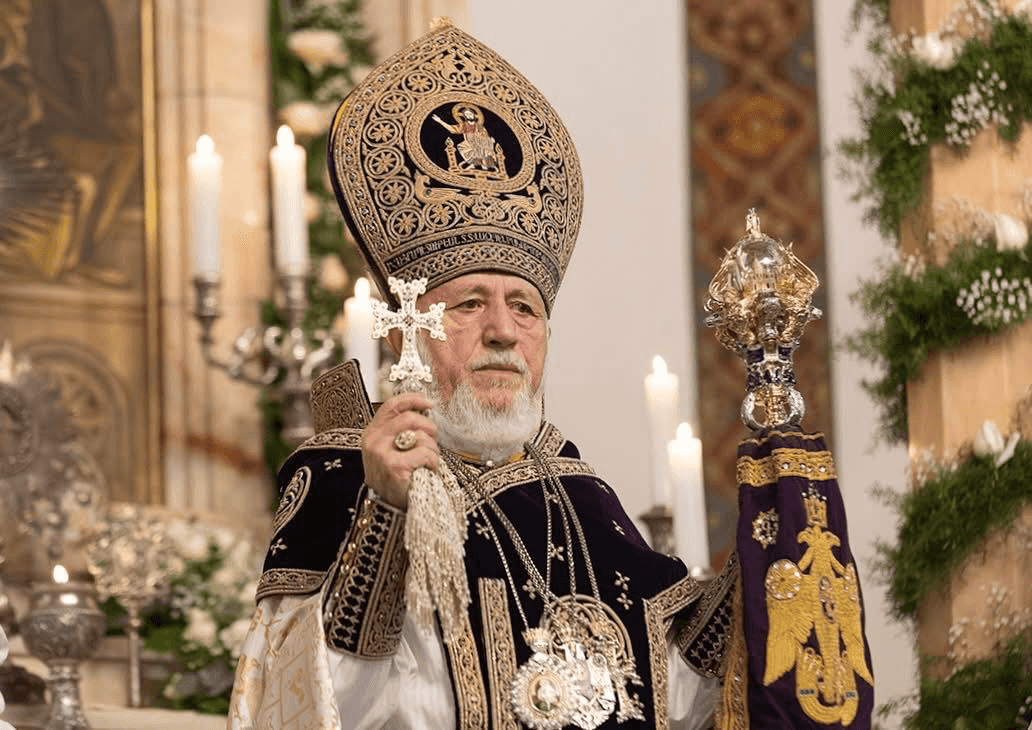
Armenian Prime Minister Nikol Pashinyan has said that Armenia offered to withdraw the EU Monitoring Mission from sections of the border with Azerbaijan that have been delimited.
Pashinyan made the comments in a one-and-a-half long hour interview with the public broadcaster on 22 November.
During the interview, he was asked to comment on a post on X made by Farid Shafiyev, the chair of an Azerbaijani pro-government think tank, in which he suggested there were three sticking points in the peace talks: alleged territorial claims in the Armenian Constitution, ‘international legal warfare’, and the withdrawal of EU observers from the Armenian-Azerbaijani border.
[Read more: Azerbaijani think tanker names sticking points in peace treaty with Armenia]
‘There is objectively no need to have observers on the border which is delimited,’ Pashinyan said, adding that the joint Armenian–Azerbaijani state border delimitation commission would decide on which sections to delimit in their next meeting. He also said that ‘processes will continue after COP29’.
Azerbaijan began to push for the withdrawal of the EU mission in September. The mission was deployed in January 2023 following Azerbaijani incursions into Armenia.
Azerbaijani presidential aide Hikmat Hajiyev told Russia’s TASS before the climate conference kicked off in Baku that ‘a new process will begin’ regarding negotiations with Armenia, probably beginning from December. He said that until the end of November, ‘the main topic on Azerbaijan’s agenda is COP29’.
Armenia and Azerbaijan have only delimited one section of their shared border in the Tavush–Gazakh regions after reaching an agreement to do so in April. This came a month after Baku demanded that four abandoned villages under Armenian control in that section of the border be ‘immediately released’. Days later, Prime Minister Nikol Pashinyan hinted that Armenia might return control of the four villages to Azerbaijan in a unilateral handover of territory to avoid war.
Following the dissolution of the Soviet Union and the outbreak of the First Nagorno-Karabakh War in the early 1990s, several areas along the border of both Armenia and Azerbaijan fell under the control of the opposing side.
The constitution and ‘international legal warfare’
Pashinyan also remarked on Shafiyev’s mention of Armenia’s constitution being an obstacle to a peace deal, again denying that it was the case. He noted that Armenia and Azerbaijan ‘have not discussed and have not included any agendas related to the constitution’ in the peace talks.
High-ranking Azerbaijani officials have repeatedly said that Armenia’s constitution contained territorial claims against Azerbaijan. In June, President Ilham Aliyev said that it would be ‘simply impossible’ to reach a deal if Armenia’s constitution ‘remains unchanged’.
At the time, Aliyev singled out Armenia’s Declaration of Independence, which is referenced in the constitution, as being a hindrance to peace.
The Declaration of Independence, signed in August 1990, includes a joint decision by the Armenian Soviet Socialist Republic and the Karabakh Council to ‘reunify the Armenian SSR and the Mountainous Region of Karabakh’.
In his interview on 22 November, Pashinyan said that Azerbaijan’s complaints about Armenia’s constitution posed ‘a very important nuance […] because do they truly have concerns and worries, or are they raising it to push the peace process into a deadlock?’
However, he added that his government ‘does not want to be guided by the logic that Azerbaijan is intentionally pushing the process into a deadlock’.
‘So, what are we doing? We are consistently using arguments to try to dispel this concern.’
Commenting on points made by Shafiyev about ‘international legal warfare’ between Armenia and Azerbaijan, Pashinyan reiterated that the two countries could reciprocally drop cases against each other at international tribunals if they were ‘truly, realistically reaching peace and establishing peace; meaning we are signing an agreement’.
‘I think that we can make that deal, which means that we shall not file lawsuits against them, and they against us, regarding previous events, reciprocally drop the lawsuits,’ said Pashinyan, adding that a peace deal would not prevent either side from filing lawsuits against the other for future events.









